![]()
![]() Like most consumers of K-Pop, I spend a good portion of my internet time on YouTube. While I unashamedly consider myself a YouTube addict, my reasons for being on this site for K-Pop purposes are usually justified, for watching music videos is an integral component of the overall K-Pop consumption experience. Though I admittedly possess a bad habit of opening a respective music video and simply listening to the music in the background as I browse the internet. While I'm sure I'm not alone in this action, this is quite bothersome to me as my iTunes collection is almost always at a higher sound quality bitrate than YouTube, which would make the listening experience more enjoyable and reflect a more accurate on my play counts. However, I likely am among the few in the fact that I strictly listen to the studio versions of these songs and music videos on YouTube, or occasionally a remix. I simply don't do live performances. I'll be completely honest: I've never once watched a single episode of "M! Countdown", "Music Bank", or "Music Core", and have only listened to a handful of live recordings of any K-Pop group, despite these type of performances continuously appearing under the allkpop news feeds and knowing the reality of how critical of a component these performances are to an artist' success.
Like most consumers of K-Pop, I spend a good portion of my internet time on YouTube. While I unashamedly consider myself a YouTube addict, my reasons for being on this site for K-Pop purposes are usually justified, for watching music videos is an integral component of the overall K-Pop consumption experience. Though I admittedly possess a bad habit of opening a respective music video and simply listening to the music in the background as I browse the internet. While I'm sure I'm not alone in this action, this is quite bothersome to me as my iTunes collection is almost always at a higher sound quality bitrate than YouTube, which would make the listening experience more enjoyable and reflect a more accurate on my play counts. However, I likely am among the few in the fact that I strictly listen to the studio versions of these songs and music videos on YouTube, or occasionally a remix. I simply don't do live performances. I'll be completely honest: I've never once watched a single episode of "M! Countdown", "Music Bank", or "Music Core", and have only listened to a handful of live recordings of any K-Pop group, despite these type of performances continuously appearing under the allkpop news feeds and knowing the reality of how critical of a component these performances are to an artist' success.
And I can already hear the flood of criticisms now concerning how insignificant of a K-Pop fan I am compared to you.
Let me retract. I do love live music performances; the whole concept of being a true artist in front of the people, performing a raw, unadulterated version of a piece without the comfort of the technologies of the studio in front of eager ears is truly, in my opinion, the best way to sell, consume, and enjoy any form of music. Then why is it that I avoid listening to and taking part in this equivalent in the K-Pop genre? That will be explained below. However, I must first explain why I am even writing this article.
This opinion editorial simply isn't a rant as to why I don't like live performances. Rather it's a critical topic concerning the state of K-Pop that I feel may be skewed in a way by the general consumer populace. That is the ethics of consumption of K-Pop, or defining what it is actually is that we as listeners of K-Pop are consuming. I find K-Pop to be a special type of "music", one that may need some training in these ethics to allow one to understand in its fullest. I tend to think that many of the controversies that involve the music of K-Pop are due to this misunderstanding. While I could dissertate on this claim, this article specifically will be focusing on the issue of lip-syncing. Not a K-Pop-specific issue, it's still something that tends to disgust a large amount of K-Pop consumers. I believe that it is this claimed "misunderstanding" of the genre which is likely at the core for these negative attitudes towards this performance practice.
So what is it that we are consuming in K-Pop? More than likely, the common person would simply scream out in a wow-you're-an-idiot response that we are consuming music. After all, K-Pop is a music genre, so that answer would very much make sense. But are we really consuming music, despite the obvious fact that we think we're consuming music? I have had reservations about this seemingly simple law of consumption for quite some time, and recently began writing down my various thoughts on this subject after being exposed to an article concerning whether or not it is fine for BoA to lip sync. The author of the article made an interesting point in that BoA is ultimately selling a song, rather than some choreography, so it would make sense that it is her job to sell that song, i.e., perform it without lip syncing.
Should we take the common person response that we as K-Pop consumers are consuming music, then this should be the priority job of BoA. However, I will discuss below my own opinion on the matter, and argue the point that music is may not be the actual thing we consume in K-Pop. Rather, I believe it to be the least important matter of the entire packaging system.
Why I Don't Like Live K-Pop Performances
When Super Junior's SPY was released recently, I performed my usual task of going on YouTube to search for the music video. I accessed the video and quickly checked my e-mail while allowing it to load. As I read my various messages, I came to find that the recording wasn't quite what I expected. As soon as I heard the roar of the screaming fans in the intro, I knew that to my dismay I had accessed a live performance of the song, as seen above, rather than the polished studio version I was looking for. Though rather than immediately finding the correct version I was searching for, I grew rather curious at my mistake and continued to listen. As most people know, Super Junior, much like most groups nowadays in K-Pop, is highly known for the high amount of electronic processing effects dubbed over their voices in their recordings. As SPY is no an anomaly from this formulaic production technique, I grew interested as to how the group would perform at these various points in their song live without the assistance of their studio equipment.
In the parts of clear over-processing, the members would sing out of tune over the studio recording in the background, which created a variety of out-of-pitch harmonies that was absolutely devastating to the trained ear. At some moments, the singers attempted to sing their part, but dropped out and let the backing take over for them, leaving sharp drops and rises in volume of the performance. Though all of this was difficult to decipher over the constant screaming of the fans, in-song lyric chants, and the distraction of the seizure-like flashing of background video screens and lights. However, the choreography was on key, and the members looked as refined as they were portrayed in their music video.
Overall, watching the live performance was less than an enjoyment for me. As the original intent of watching SPY on YouTube was to primarily hear the uninterrupted studio version of the song performed to choreography, the distractions of the live performance in accomplishing this left this curious consumer rather disappointed. And this is not Super Junior's fault solely: these same traits are ubiquitous between the majority of live K-Pop performances I've seen. The product I intended on consuming, the music, is butchered by tone-deaf singers attempting to perform over studio versions, or becomes inaudible due to the screaming fans. This is why I don't like live performances.
What Are We Really Consuming?
This subsequently leaves to me to ponder what this performance must be for the attendee of the concert. Clearly they would have an even more difficult time hearing what they could of the performance being smack-dab in the middle of a pit of obsessive, screaming fan boys and girls. This type of situation would leave listening to music to be the least important consumption medium in this type of experience. Yet upon hearing the responses of various fans I have as contacts who attend these concerts, they don't seem to be overly disappointed with their inability to hear the performance, or even with the fact that the performance was musically butchered compared to the original studio version and that the singers were primarily lip syncing mostly through their set.
This seems to conclude that music is the least prioritized aspect during the live performance, which raises up the question on whether or not music is the thing that is most important in our K-Pop experience in general?
If anyone follows my reviews, I often am found condemning many K-Pop songs for sounding recycled and unoriginal compared to just about every other release. While I don't hold a strict Adornoistic view on the production habits of K-Pop, I think most would have a hard time arguing that a good portion of K-Pop is very narrow and superficial that is generally aimed at pleasing a mass audience. Thus any type of variation or originality outside of the standards expected by the populace is generally not promoted nor accepted by the masses. Variance is thus considered to be an economic sin to the money hungry K-Pop management companies, so they usually maintain production with this narrow viewpoint. Surely we can argue that new releases are refreshing, but they soon fade into the landfill of the unoriginal for our ears adjust to the banalness that is hidden behind the glitz and galmour of its newness.
Since K-Pop music for the most part follows this cliched standard, there must be strong reliance on other factors in its packaging to make it attractive for an extended amount of time to the consumer. The general tenants of this packaging is interesting choreography, captivatingly gorgeous performers, well-produced music videos, and fashion-based photo shoots, among others. When it comes down to it, without all of these extramusical factors used to promote a song, K-Pop would be relatively boring. It is these factors that ultimately draw us into the never-ending product consumption habits, and its the reasons why we are drawn to go to live performances or watch them on television.
I personally know that I am guilty of this scheming. I only became interested in K-Pop after becoming obsessed with the attractiveness of Sooyoung of Girls' Generation. While she's not a musically important aspect to the highly successful group, seeing her in music videos and in various photo shoots made me tolerate the music in order to pursue this fantasy fix. Furthermore, because I was looking for music videos of Super Junior's SPY even before I heard the song further emphasized how unimportant music is compared to the visual factors that is unseperatably affixed with K-Pop. I'm sure we all have our guilt stories comprable to this.
Why is this? Well, that's uncertain. Though one they that is rather interesting is that as we are unarguably products of Steve Jobs and his self-created iPod generation, the only way for capitalists to get into our headphone-cladded heads is through our ears. Having K-Pop pumped into our ears allows our senses to be awaken to the entire packaging, which is concluded to be more interesting and thus more important than the music itself. Music seems to be just a delivery medium that quickly becomes enshroud in the whirlwind of everything else.
In Support of Lip Syncing
I've never understood why people are immensely against lip-syncing. While the prominent example to many Westerners is the folly of Ashlee Simpson performing on Saturday Night Live, K-Pop has it's share of critiques. The most notable and recent, as mentioned prior, being when superstar BoA was recently criticized for lip syncing during a performance her recent hit single "Only One". While the purpose of this editorial isn't meant to argue whether or not BoA was justified in lip syncing, much like realigning our view on consumption, I would like to attempt to explain why I am a proponent of performers lip syncing during their performances.
When listening to a live performance, the way I see it is you either suffer a horrible musical experience, as I described prior when I expressed my distaste for live performances, or you hear something that is what you come to expect from exposure the perfected studio version. Furthermore, as the majority of attendees to the live events of K-Pop aren't necessarily there to listen solely to the musicnot that they would be able to hear it to begin withbut rather to indulge in the million-and-one other stimulating factors put in front of us, this whether or not the performer is lip syncing should really be the least concerning at the event.
I find that the complaints and critiques towards performers lip syncing is primarily expressed by those viewing the live performance through another media outlet, rather than experiencing the event in person. Certainly we become stimulated through the visual images when we watch these performances on our television and on the internet, but the setup of the recording production and subsequently what we hear causes a bigger emphasis on what is actually heard on by the performance producers, which is quite skewed to the relative sound that the mosh of fans are experiencing. Thus these armchair viewers are far more critical on a performance aspect that is relatively unimportant in its proper place, as it is the primary sensory experience they are exposed to. As a result, I all to often hear these arm chair viewers complain how talentless the performers are and how they feel robbed to some extent by once enjoying their music. I usually end up staring at them blankly and wanting to scream out "Seriously?".
Should we want to experience a perfect music performance, this is what the album on our iTunes is for or what the officially produced music video is for. The producers of the said mediums spent countless hours perfecting the various vocal and instrumental aspects of a track to bring to us the flawless musical experience. As we are exposed to perfection on the studio recording, this what we come to expect from the performers. Outside of the comfort of the studio, no performer is perfect and to think that they should perform as suchin addition to their complex choreography and the stress of being on the moment that is present in performing liveis absolutely childish for us to expect. The live performance, on the other hand, is meant to be experienced live; it's not perfected by the sound engineer. It is not supposed to portray the perfection that we experience in the album. The live performance, in K-Pop at least, is rather a chance to indulge in the extramusical factors described priorthe elements that are more important than the music itself.
What is erroneous about this conundrum is the mismatch in viewing experience the consumer is going through. Viewing live performances in a recorded performance setting puts us in a confused liminal space for which our critiques are ultimately skewed with the expectations of what that experience is supposed to bring. In other words, we expect perfection in the non-perfect setting that was described prior. This is where lip syncing can solve this issue. Lip-syncing would not detract from the experience the live performance on the attendee's behalf, for it was concluded that music is the least important aspect in this sphere. However, it would allow those viewers who view this type of performance from the comfort of their own home have the experience of the perfected music that they expect to hear and are used to hearing in that setting. The lack of hearing the flaws of the oh-so-human performers, which is something that is largely ignored and unable to be heard in the live performance setting anyway, would thus allow the armchair consumer to indulge on the extramusical images that is present in the performance with greater ease. As we discussed, these extramusical factors are likely the reason that consumer is watching the live performance in the first place, and the most ideal consumption of these factors would to no be detracted from the humanness of the performers.
Also, I'm not saying it's easy to accept lip-syncing. It'll take some work, obviously. But this is the training that we must go under that the intro to this article discussed.
I am rather aware this suggestion may seem perplexing at first. I am rather shocked I am suggesting it to begin with, as I frequent as many live performances of various music genres as my budget allows. Though when we consider the special type of "music" that K-Pop is, this actually does make a good deal of sense. K-Pop is not about music, it's about image. Without this glitz and glamour, K-Pop would likely not be experiencing its current worldwide sensation status. Performers are generally not created there to wow us with out musical skill, or to send us a deep message in "their" music, rather they are simply there to give us a complete sensory experience that is experience primarily through our eyes. This is why the beautiful are the ones who succeed, rather than the talented.
I believe that many are somewhat blind to these points related to K-Pop, which leads to the unnecessary scrutiny of lip-syncing. Should we embrace lip-syncing, those who still think in the traditional or skewed way music is supposed to be experiencemyself very much includedwould have a far more enjoyable overall K-Pop experience. Perhaps if we didn't torture the products of these companies in attempting to be perfect vocal robots on stage, amongst everything else they must do to a blank, and allow the actual robots to take care of the performing, then maybe even I would enjoy live performances. But until lip-syncing becomes the normal standardor somehow I attend a live concert, which will likely not happen anytime soonI will continue my distaste for them in lieu of the perfect studio music videos that I spend my hours on YouTube viewing.
0
0
, ,
 Posted by 0 pt Friday, September 7, 2012
Posted by 0 pt Friday, September 7, 2012
[OP-ED] In Support of Lip Syncing: Redefining K-Pop Consumption

0
76,353
Share
Be the first to vote
 SHARE
SHARE

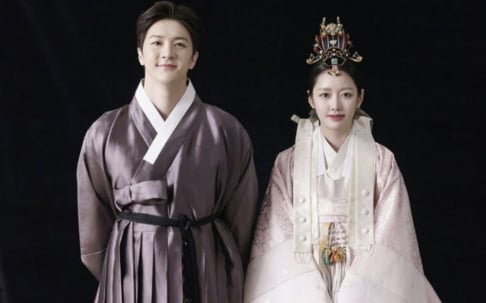


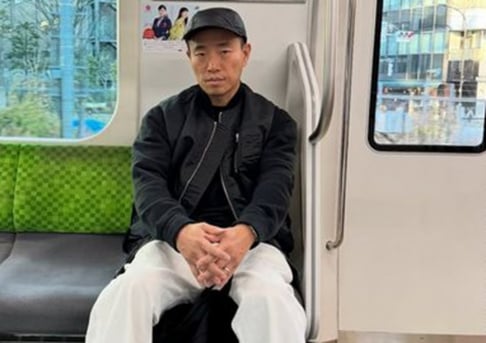

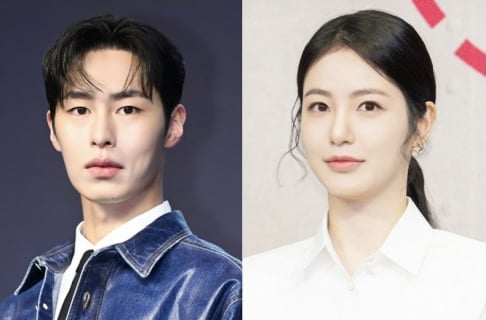






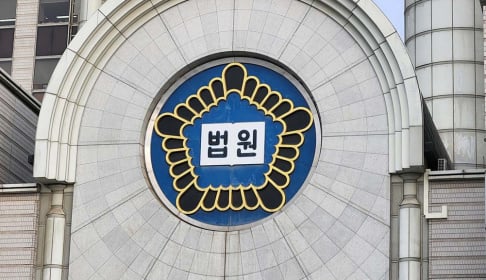
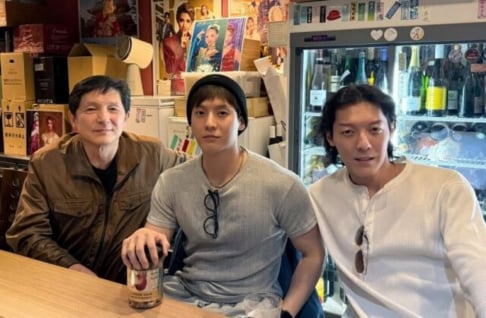

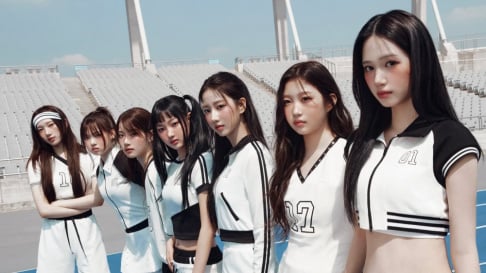
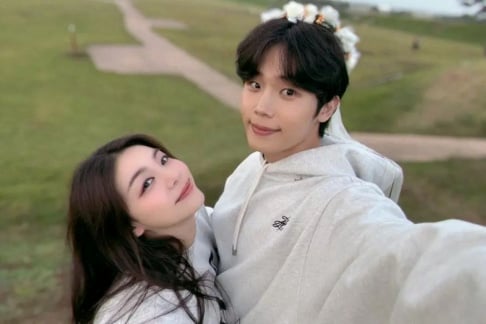
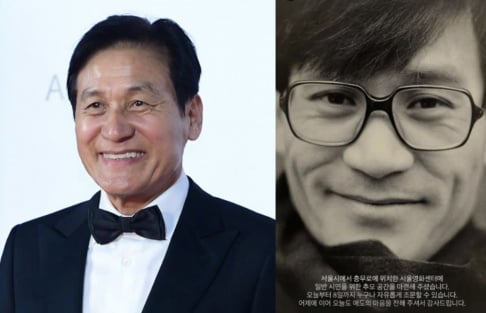



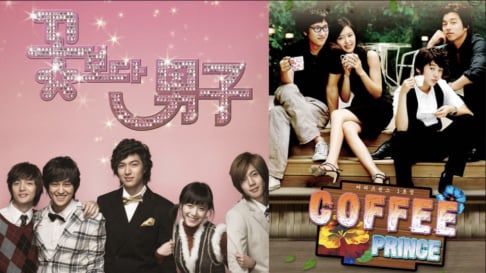


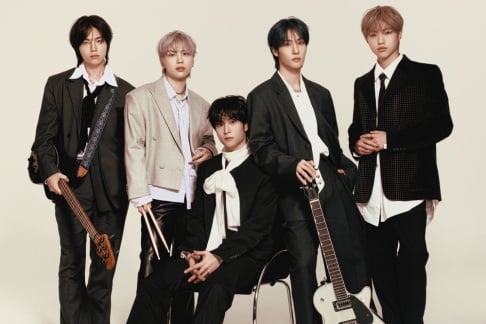


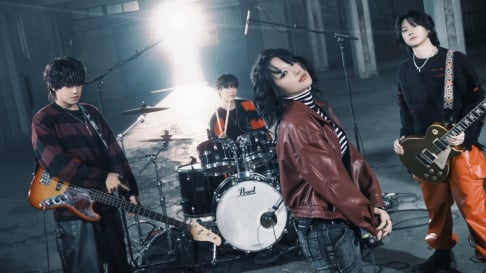

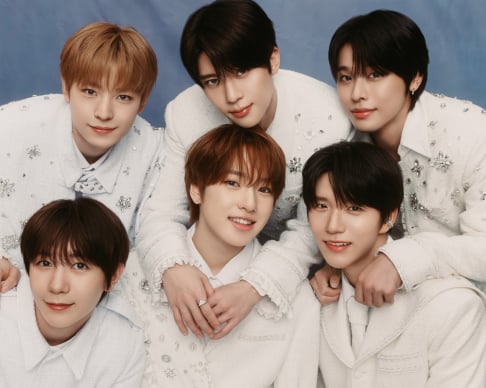
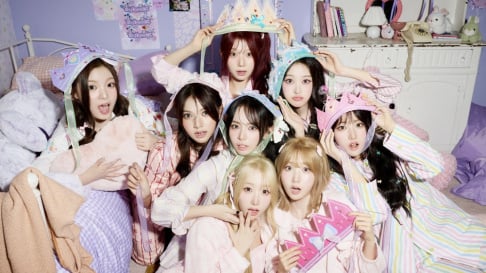
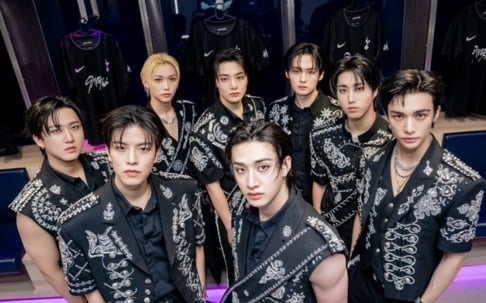
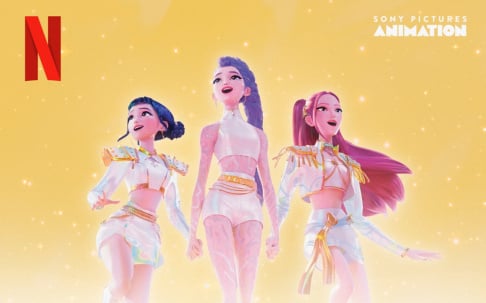


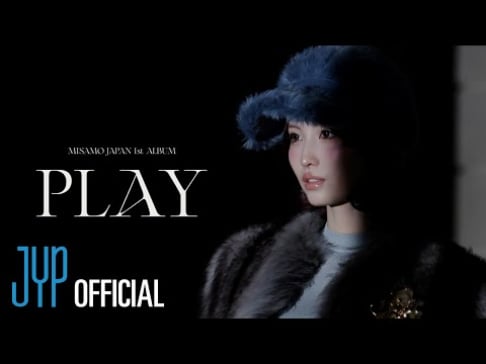


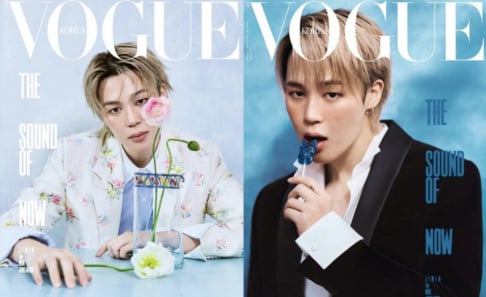
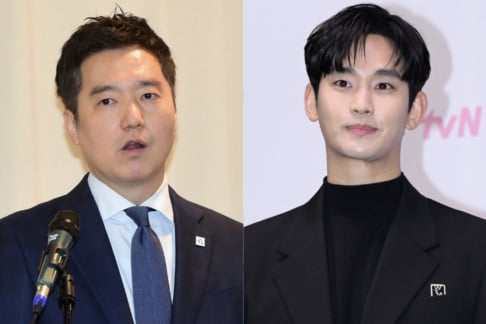








Log in to comment